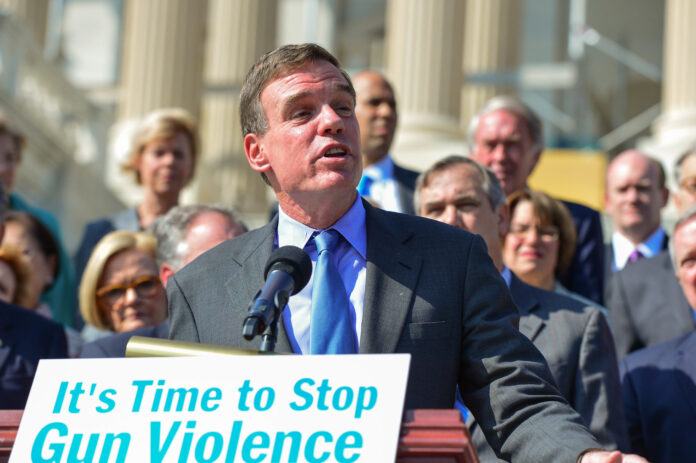A poll released this week by the Virginia Commonwealth University L. Douglas Wilder School of Government shows presidential candidate Joe Biden and U.S. Sen. Mark Warner leading by double-digit margins in the commonwealth.
The Richmond-based university conducted a telephone poll of just over 800 adults from Aug. 28 to Sept. 7.
The results show Democratic nominee Biden ahead of President Donald Trump by 14 percentage points (53% to 39%). Warner, a Democrat who has represented Virginia in Congress for more than a decade, is ahead of his Republican challenger Daniel Gade by 17 percentage points (55% to 38%). The poll had a margin of error of 5.17 percentage points for all adults sampled and 6.22 percentage points for likely voters.
Biden is leading in the Northern, South Central and Tidewater regions of the state, while Trump leads in Western and Northwestern Virginia.
Stephen Farnsworth, director at the Fredericksburg-based University of Mary Washington Center for Leadership and Media Studies, said that Trump’s message resonates with rural voters in the western part of the state.
“His focus on the message of Christian conservatives resonates well in rural areas,” Farnsworth said. “Trump has appointed politically conservative judges, and Christians have been well served by him.”
Farnsworth said that Trump tends to lose in suburban areas of Virginia such as Northern Virginia, where voters tend to be socially progressive but fiscally conservative.
The poll also provided insight into the demographics of Biden voters.
“Something that was interesting was the strength of women as an indicator of support for Biden,” said Farrah Stone, who directed the VCU poll.
Women were more likely to support Biden over Trump by 22 percentage points (58% to 36%). Men preferred Biden over Trump by five percentage points (47% to 42%). In July, a Wilder School poll found that men were more likely to say they would vote for Trump.
The poll also shows Biden’s nomination of Sen. Kamala Harris, D-Calif., as his running mate does not significantly affect his support among women or minorities.
“If you’re looking at Kamala Harris, there aren’t significant differences between whites and minorities, or men and women,” Stone said. “What was significant was whether you were a Democrat or Republican.”
Farnsworth said that vice presidential candidates often don’t change people’s votes, but they can help a candidate by increasing turnout among people who support the candidate but wouldn’t otherwise vote.
“If Biden’s pick of Harris ramps up turnout among African American voters, then that was a smart decision by Biden,” Farnsworth said. “This election is largely frozen in place; there aren’t many voters who are undecided.”
Hillary Clinton secured a Democratic victory in the commonwealth during the last presidential race, beating Trump by over 212,000 votes. The 2016 turnout of registered voters was higher than in 2012, but lower than 2008, according to the Virginia Department of Elections.
The poll also asked voters about an issue that has recently come to the forefront of election news: the reliability of mail-in voting.
Virginians are split on whether mail-in voting is trustworthy. When combined, 50% of respondents are “somewhat or very confident” that mail-in votes will be accurately cast and counted, while a combined 48% are not too or not at all confident about the process. Trust in mail-in voting is affected by party affiliation, with a majority of Republicans finding it untrustworthy, according to the VCU poll.
“The differences are significant across party lines, which line up with voting and support for Trump,” Stone said.
Sixty-seven percent of Republicans said they were “not at all” or “not too” confident in the accuracy of mail-in ballots.
“Trump has tried to increase public doubts about mail-in voting,” Farnsworth said. “No previous candidates have emphasized mail-in voting this much, but it’s never been this significant before.”

